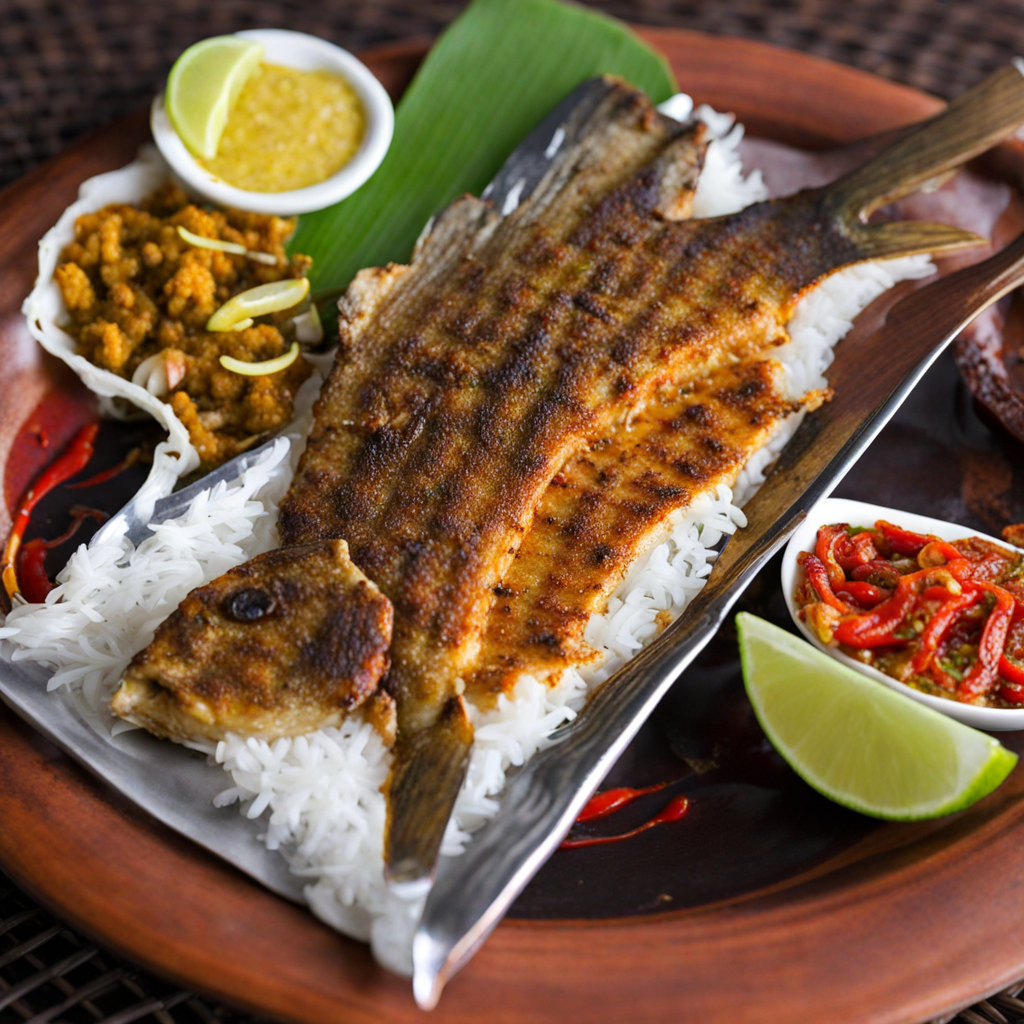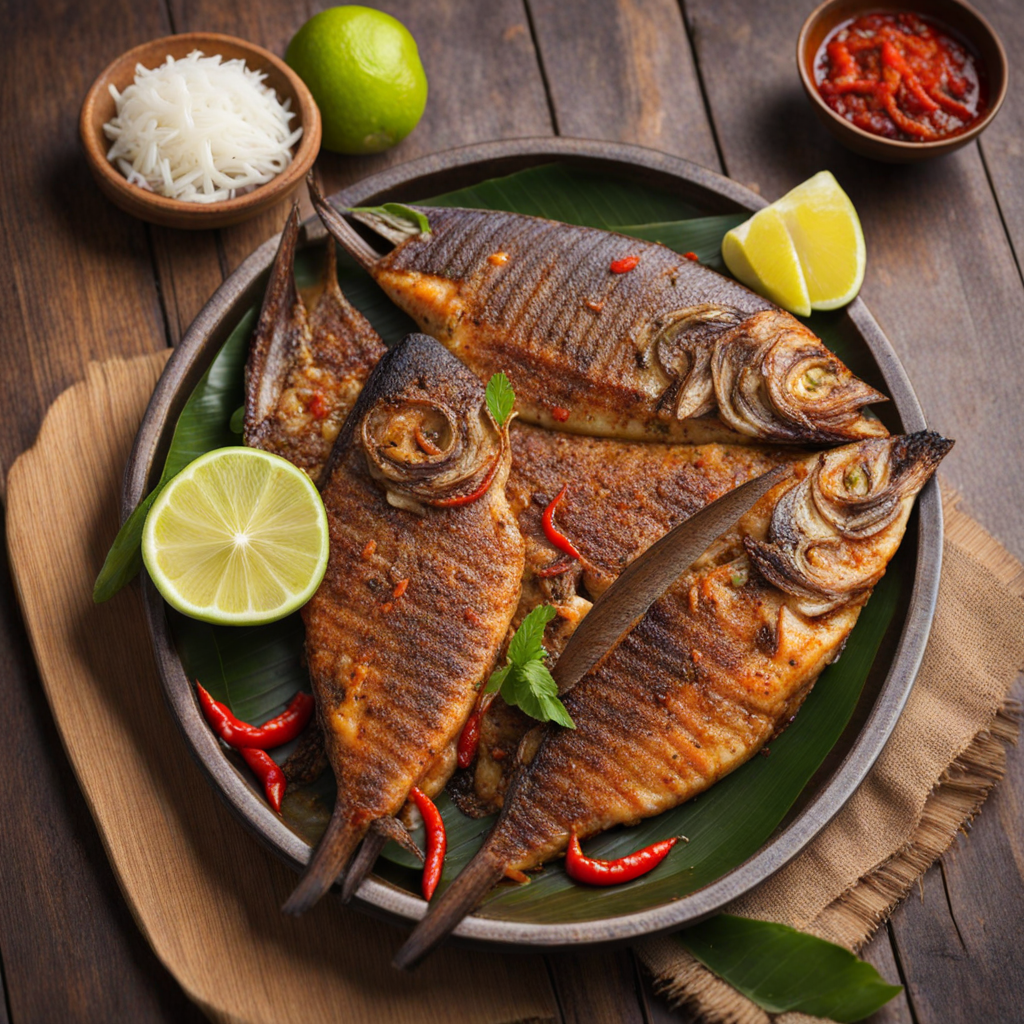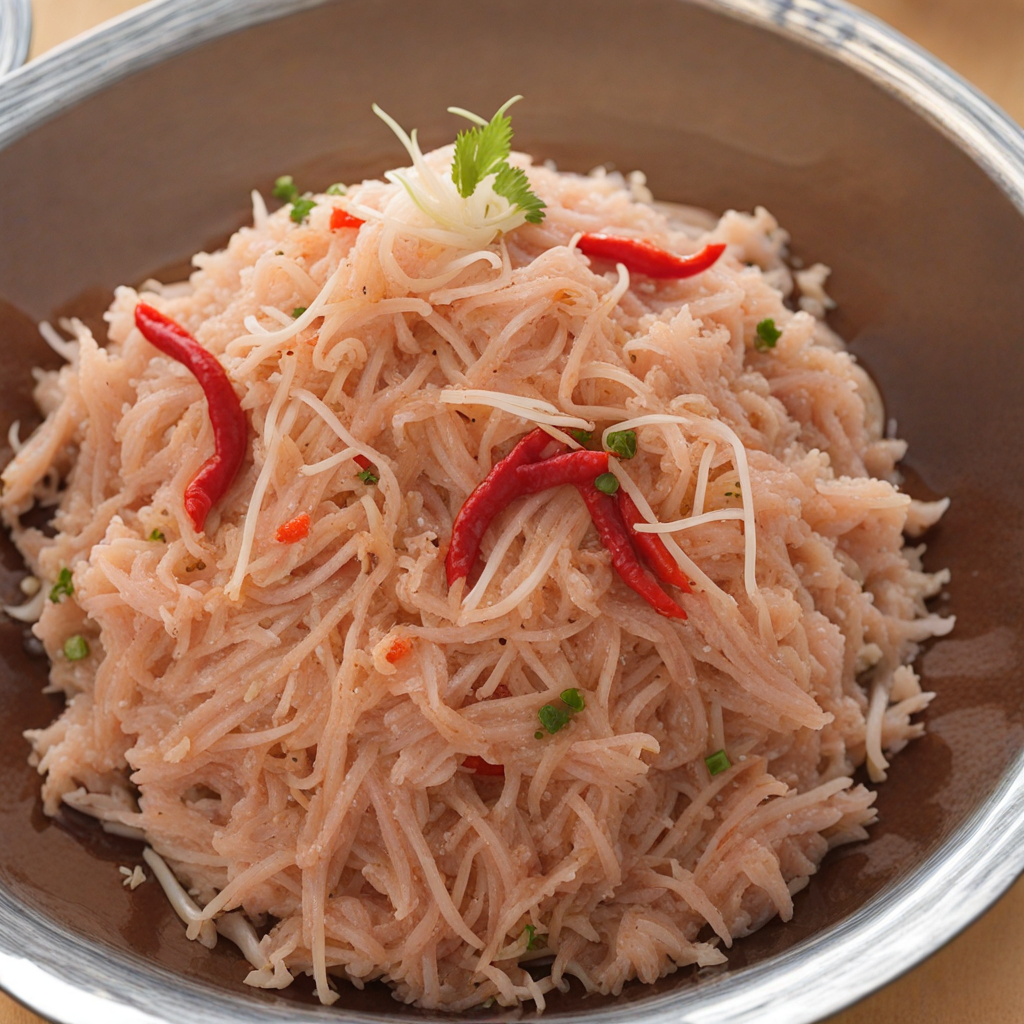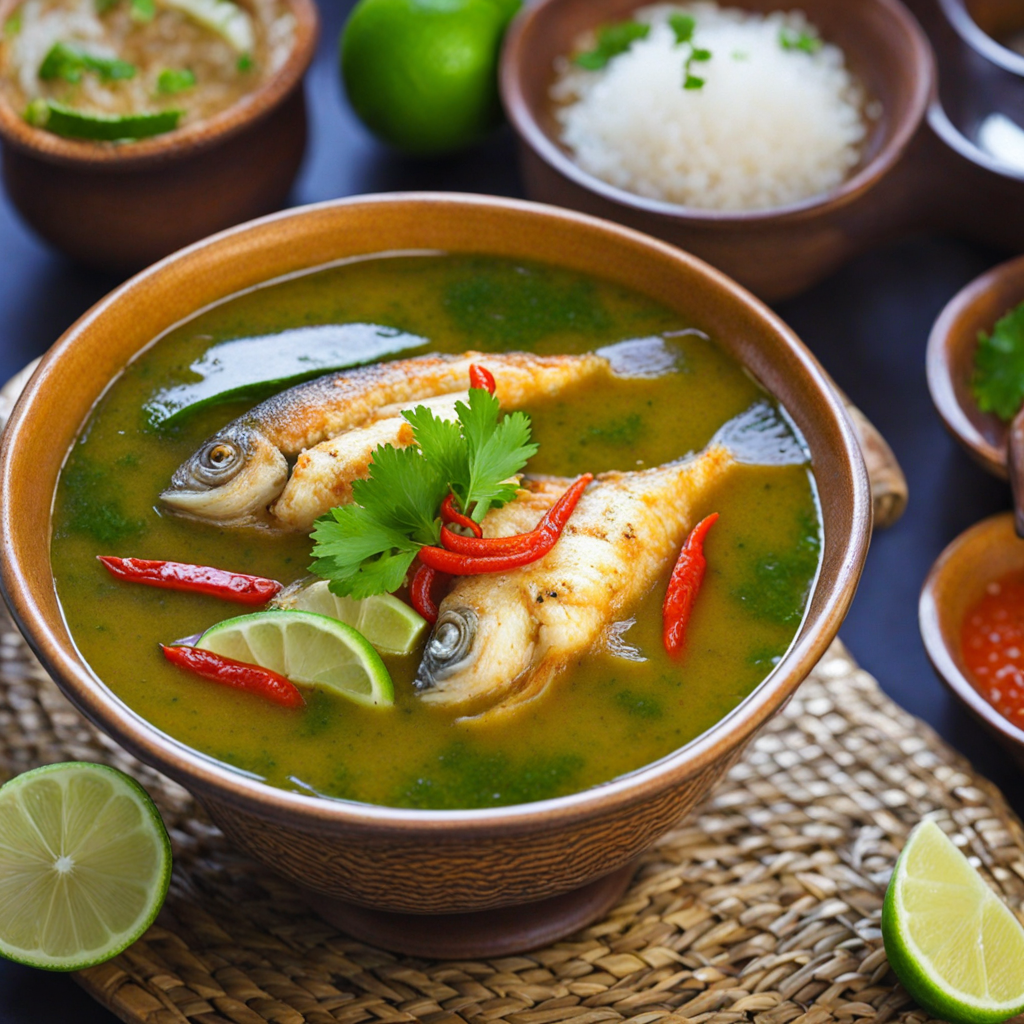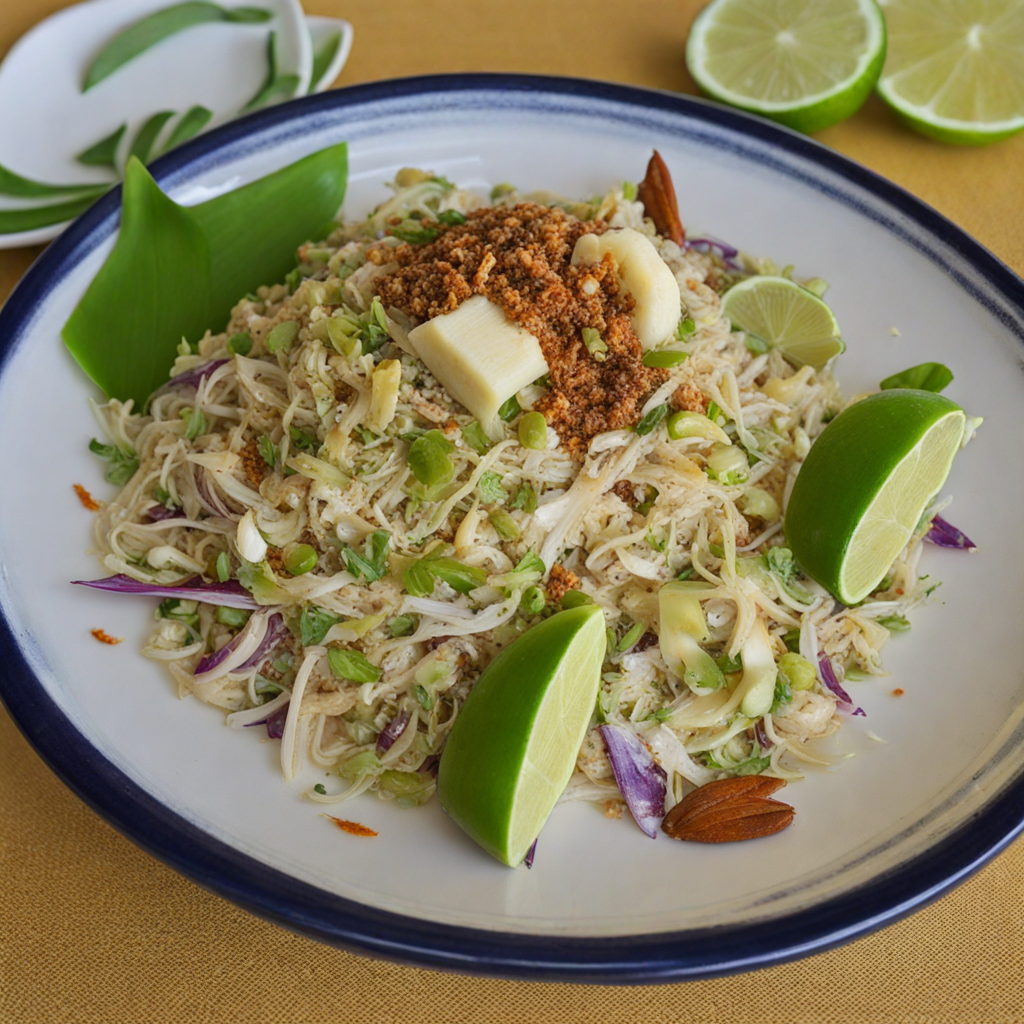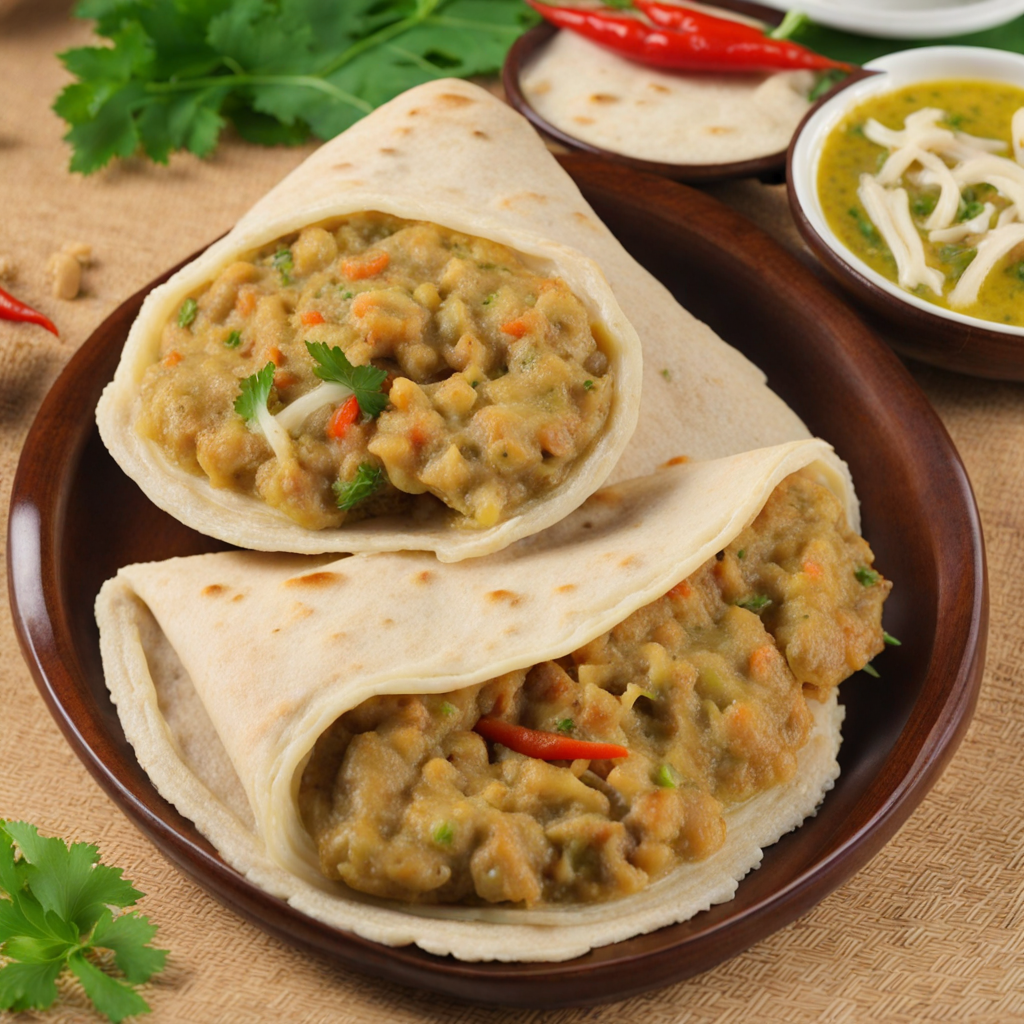Fihunu Mas
Fihunu Mas is a delightful Maldivian dish that showcases the vibrant flavors of the Indian Ocean. At its core, Fihunu Mas features fresh fish, typically tuna, marinated in a blend of spices that reflects the rich culinary heritage of the Maldives. The fish is often coated in a mixture of chili powder, garlic, ginger, and a touch of lime juice, giving it a zingy and aromatic profile that tantalizes the taste buds. The preparation usually involves grilling or baking, allowing the fish to absorb the spices while retaining its natural moisture and flakiness. Accompanying Fihunu Mas are often side dishes that enhance the overall dining experience. Coconut rice or steamed white rice serves as a neutral base, balancing the bold flavors of the fish. Additionally, the dish is frequently paired with a fresh salad made from local vegetables and a tangy dressing, which adds a refreshing crunch. The combination of the spicy fish and the cool, crisp vegetables creates a harmonious contrast that is both satisfying and invigorating. What makes Fihunu Mas truly special is the emphasis on freshness and quality ingredients, typical of Maldivian cuisine. The fish is often caught the same day it is served, ensuring that diners experience the best flavors the ocean has to offer. The dish is not just a meal; it is a celebration of the sea, the spices, and the culinary traditions of the Maldives, inviting food lovers to explore a taste that is both exotic and familiar, leaving them craving more.
How It Became This Dish
The Culinary Journey of ފިހުނު މާސް (Fihunu Mas) in Maldivian Cuisine #### Origins The Maldives, a tropical paradise in the Indian Ocean, is known for its stunning atolls, rich marine biodiversity, and vibrant culture. Among the culinary treasures of this island nation is Fihunu Mas, which translates to "grilled fish" in the local Dhivehi language. The roots of Fihunu Mas can be traced back to the ancient seafaring communities of the Maldives, who relied heavily on the ocean for sustenance. The natural abundance of fish in the surrounding waters made it a dietary staple for the islanders. Historically, the Maldivians practiced sustainable fishing, using traditional methods such as handlines and nets. The ocean's bounty included a variety of fish species, including tuna, mackerel, and snapper. The preparation of fish through grilling became a popular method not only for its simplicity but also for the way it preserved the fish’s natural flavors. The use of fire and smoke to enhance taste has been a culinary tradition in many cultures, and in the Maldives, it became an art form. #### Cultural Significance Fihunu Mas is more than just a dish; it is a representation of Maldivian culture and identity. The act of fishing is steeped in tradition and communal engagement. Fishermen often gather to share stories and experiences, fostering a strong sense of community. Grilling fish is often a communal activity, especially during festivals, family gatherings, and celebratory events. The dish embodies the spirit of togetherness, as families and friends come together to enjoy freshly grilled fish, often accompanied by rice and various condiments. Additionally, Fihunu Mas reflects the Maldivian way of life, which is closely intertwined with the ocean. The islands are home to a diverse range of marine life, and fish is not only a primary source of protein but also a cultural symbol. The dish is often served during special occasions, including weddings and national celebrations, signifying its importance in Maldivian culinary customs. #### Development Over Time Over the years, the preparation and presentation of Fihunu Mas have evolved while still honoring traditional methods. Initially, the fish was simply seasoned with salt and grilled over an open flame, allowing the natural flavors to shine. However, with the advent of culinary globalization and the influence of various cultures, new techniques and flavor profiles began to emerge. In the late 20th century, as tourism began to flourish in the Maldives, the culinary landscape started to shift. Tourists brought with them diverse palates and expectations for unique dining experiences. This led to the introduction of various spices and marinades to the traditional Fihunu Mas recipe. Today, chefs often use a blend of local spices such as chili, garlic, ginger, and lime to create marinades that enhance the flavor of the fish. Coconut milk and curry leaves are also common additions, reflecting the influence of Indian and Sri Lankan cuisines, which have historically played a role in shaping Maldivian gastronomy. Moreover, the presentation of Fihunu Mas has become more refined, with chefs focusing on aesthetics as much as taste. The dish is often beautifully plated with colorful garnishes and served with an array of side dishes, including mas huni (a traditional tuna salad made with coconut and onion), rihaakuru (a rich tuna paste), and various chutneys. This evolution mirrors a broader trend in global cuisine, where visual appeal is as important as flavor. #### Sustainability and Modern Practices In recent years, there has been a growing awareness of sustainable fishing practices and the importance of preserving marine ecosystems. As a result, many Maldivian chefs and fishermen have started to advocate for responsible fishing methods to ensure the long-term viability of fish populations. The emphasis on sustainability has also influenced the preparation of Fihunu Mas, with a focus on using locally sourced, seasonal fish. Furthermore, the rise of farm-to-table dining experiences has allowed chefs to connect more deeply with their ingredients and the local community. Some restaurants now offer guests the opportunity to catch their own fish, which is then prepared on-site, providing a unique and immersive culinary experience. This trend not only enhances the flavor of the dish but also strengthens the bond between the diners and the local culture. #### Fihunu Mas in Contemporary Culture Today, Fihunu Mas remains a beloved dish in Maldivian households and is a staple in restaurants across the country. It has transcended its traditional roots to become a symbol of Maldivian identity on the global culinary stage. As the Maldives continues to attract tourists from around the world, Fihunu Mas has become a must-try dish for visitors eager to experience authentic Maldivian cuisine. Food festivals and culinary events often feature Fihunu Mas, showcasing the skills of local chefs and the rich flavors of Maldivian cooking. The dish serves as a bridge between the past and the present, embodying the islanders' deep connection to the sea while embracing modern culinary trends. #### Conclusion Fihunu Mas is not just a dish; it is a narrative woven into the fabric of Maldivian culture, history, and community. Its origins in traditional fishing practices, its evolution through the influence of diverse culinary traditions, and its contemporary embrace of sustainability reflect the resilience and adaptability of Maldivian gastronomy. As the Maldives continues to navigate the challenges of modernity and globalization, Fihunu Mas stands as a testament to the enduring spirit of its people and their profound relationship with the ocean. Whether enjoyed by locals or tourists, Fihunu Mas remains a flavorful reminder of the Maldives' rich heritage and the vibrant culture that thrives within its idyllic shores.
You may like
Discover local flavors from Maldives


